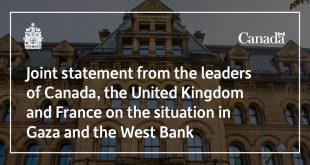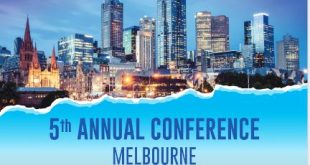
Keynote address by Mass L. Usuf, Attorney at Law at the Conference of the World Forum for Sri Lankan Muslims (WFSLM) held in Toronto, Canada, on 29th October 2022, on the title:
“Good Governance the bedrock of a stable nation”. The role of the Sri Lankan Muslim expatriates.
This brief presentation consists of four parts:
- An Introductory analysis
- A synopsis on what is meant by Good Governance
- Proposed Action by the World Forum for Sri Lankan Muslims
- How the Muslim expatriates can engage in this exercise?
1. An Introductory analysis
In order to understand the bankrupt status of the country today and what created this situation several factors can be identified.
The different governments especially, Rajapaksas (commonly identified as such) heavily borrowed to finance the civil war in Sri Lanka. They then borrowed money to build a lot of fancy infrastructure that did not give them economic returns.
In 2019, after Gotabaya came to power, he slashed taxes. Thereby draining the government coffers of funds needed to run the country. The government’s agricultural policy on organic farming resulted in a disaster, which reduced the tea production and domestic food production. The Covid 19 pandemic cut off tourism depriving the country of valuable foreign exchange. Exports from Sri Lanka like tea, garments etc. took a collateral hit. Further, reducing foreign exchange earnings. Annual remittances from the expatriate community approx. 7.1 billion US dollars, reduced partly due to corruption and fiscal mismanagement by the Government.
Finally, what happened was that Sri Lanka had a total debt of US$ 51 billion approximately. Annual debt servicing amounts were in the range of 4 – 5 billion US$ up to 2026. Current inflation rate above 60%. The consequences of high debt accumulation due to (1) Economic stagnation (2) Corruption (3) Financial mismanagement (4) Trade and Budget deficit (5) Corrupt tax policies.
In the Global Corruption Index Sri Lanka was 94 out of 180 countries in 2020. In 2021 it became worst and was 102 out of 180 countries. The Sri Lankan score was 37 out of 100. Zero is the worst corrupt and 100 is the cleanest country.
The reason for this disaster overall is the lack of good governance.
- What is meant by Good Governance
From a Governance point of view, the accepted viewpoints are that good governance promotes accountability, transparency, efficiency and rule of law at all levels. The idea is to make governments responsible and to ensure that it functions to meet the needs of the people.
International bodies have acknowledged that by adopting good governance principles there can be efficient management of human capital, natural resources, economic and financial resources for equitable and sustainable development and most importantly, to minimise corruption.
From a society’s point of view, it is our responsibility as citizens to make sure that these principles are followed by the Government. Therefore, engagement of civil society is very significant. Good governance, as recognised globally, is to assist societies to develop on effective government within a democratic system, and to implement development principles through engagement with citizens and civil society.
Several world bodies like The World Bank, the International Monetary Fund, UNESCAP (United Nations Economic and Social Commission for Asia and the Pacific) have adopted the concept of good governance. In fact, in the 1990s, the World Bank was the first to recognise and adopt the principles of good governance and popularise it amongst the public, when lending funds for developing countries.
- As per the United Nations (UN), governance refers to the activities of all political and administrative authorities to govern their country.
- The International Monetary Fund (IMF) stated, governance is a concept in which a country is managed, including economic, policy, and legal aspects.
- The United Nations Economic and Social Commission for Asia and the Pacific (UNESCAP), has developed eight principles of good governance.
- Participation
- Rule of law
- Transparency
- Responsiveness
- Consensus oriented
- Equity and inclusiveness
- Effectiveness and efficiency
- Accountability
- Action by the World Forum for Sri Lankan Muslims (WFSLM)
Only two actions have been identified for practical purposes.
- Lobbying for the creation of a Commissioner for Good Governance
- Strengthen the Rule of Law and repeal of the Prevention of Terrorism Act No. 48 of 1979, (PTA).
- Lobbying for the creation of a Commissioner for Good Governance
With regard to lobbying for the creation of a Commissioner for Good Governance, there has been a draft document already developed by a Civil Society Organisation in Sri Lanka. (Please see link below).
There is also a Commission established in Tanzania by the name Commission for Human Rights and Good Governance (CHRAGG). WFSLM can adopt these two as its working document and develop a final document.
This Commission will serve as an independent, national, oversight institution mandated to protect, human rights and good governance. The final document shall be the one with which the lobbying activities will be pursued.
Read in full the following proposed legislation.
https://www.ft.lk/opinion/Public-Commission-for-Good-Governance/14-737404
Tanzania : https://www.eisa.org/wep/tanagency.htm
https://www.chragg.go.tz/uploads/documents/sw-1645528081-CHRAGG%20Strategic%20Plan_2018-2023.pdf
Define public authority to include a wide section of the government bureaucracy and politicians.
- Strengthening the Rule of Law and repeal of the PTA.
Under a power centric Executive President, the implementation of the Rule of Law can be challenging. The country has witnessed how friends, relations, politicians have not been investigated for various alleged offences against them. Therefore, either do away with the Executive Presidency or reduce the powers of the Executive President and transfer them to the Parliament.
A course of action to be followed for this purpose is suggested below:
- Strengthening the Independent Commissions and Councils in the Constitution
- Strengthening the Parliamentary Oversight Committees with multi-stakeholder partnerships with professionals, academics, intellectuals and field experts to benefit from their knowledge, expertise, and technical input.
- Constitutional safeguards ensuring separation of powers, proper checks and balances, Judicial review of legislation.
- Broaden the fundamental rights regime in the constitution.
- Ensuring an independent Judiciary by reviewing the Judicial Service Commission, appointments to the Judiciary etc.
- Repeal of PTA is in keeping with UNHCR resolution.
2.How the Muslim expatriates can engage in this?
There is a concept called the Open Government Partnership (OGP) which is recognised worldwide by many countries. It supports civic engagement as a key goal and commits “to making policy formulation and decision making more transparent, and deepening public participation in developing, monitoring and evaluating government activities.” The OGP system also calls for “a culture of open government that empowers citizens, and advances the ideals of open and participatory 21st century government.”
Open Government Partnership (OGP) that has expanded from eight founding countries in 2011 to 65 countries in 2014.
Moreover, there is the UN proposed Seventeen Goals for Sustainable Development for the post-2015 agenda. In this list of goals, the 16th and 17th objectives state:
Goal No. 16 : Strong Peace and Justice Institutions:
“Promote peaceful and inclusive societies for sustainable development, provide access to justice for all and build effective, accountable and inclusive institutions at all levels.”
Goal No. 17 : Partnerships to achieve the Goals.
“Encourage and promote effective public, public-private and civil society partnerships, building on the experience and resourcing strategies of partnerships.”
Reference is being made to these areas to gives WFSLM the legitimacy to engage in this exercise based on concepts developed, recognised and adopted by world bodies and several countries. It will enhance WFSLM’S ability in lobbying effectively.
There will be a need to amend the Constitution for this purpose. Since we already have a Human Rights Commission, we can either establish this Commission separately or like Tanzania merge both together.
The Commission must open offices in each Province to bring its services closer to the people in the country. Initiate collaboration with Civil Society Organisations (CSO) in the delivery of human rights and good governance education in the country.
Conduct promotional initiatives to raise public awareness and understanding of human rights and principles of good governance among the public and other stakeholders – Parliament, Judiciary, Police, Prisons, Media, Local Authorities. Share Knowledge on human rights and principles of good governance among the general public, schools, colleges, media, law enforcers.
There are two ways in which the World Forum for Sri Lankan Muslims can contribute to the Open Government Partnership.
- By participating and engaging locally.
- International lobbying using the Sri Lankan communities abroad.
(a) By participating and engaging locally
Local engagement will require working with Civil Society Organisations and for this WFSLM may have to:
- muster the support of lawyers, professionals in the different fields, academics, and corporates as part of the CSO mobilisation.
- Civil activism also needs capacity building.
- A proper Programme development is essential. This will include assessment of current situation, programme planning, implementation, monitoring and evaluation.
- Organisational cohesion: Multiple organisations with a common agenda have to be identified for coordinated participation in partnership.
- These agencies may be local, national, or even international. Entities working in isolation may duplicate the exercise while working as a mobilised body can be effective.
- It is also important to work with individuals, other communities and political leaders where appropriate.
- International lobbying using the Sri Lankan communities abroad.
With the developed final documents and the road map to achieve them, interventions at a geopolitical and diplomatic level have to be explored. Some of the institutions that can influence decision making in Sri Lanka are United Nations Human Rights Council, European Council, Commonwealth Secretariat, Organisation of Islamic Countries, World Bank, IMF, Asian Development Bank, Embassies and High Commissions, Lobbying with Member of Parliament in various countries etc.
Well, that pretty much sums up my brief outline on the subject.
Thank you.
Disclaimer :
Views expressed by writers in this section are their own and do not necessarily reflect World Forum for Sri Lankan Muslims (wfslm.org) point-of-view.
 World Forum for Sri Lankan Muslims Sri Lanka Muslims Forum
World Forum for Sri Lankan Muslims Sri Lanka Muslims Forum


